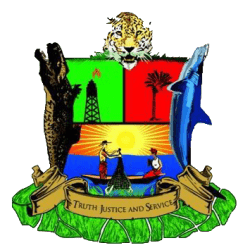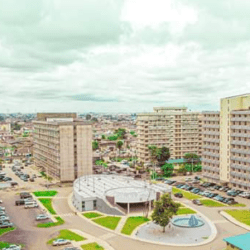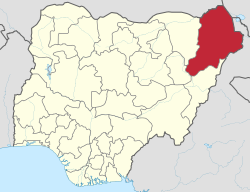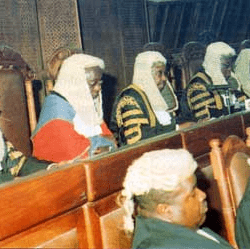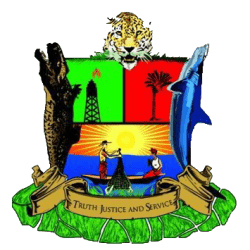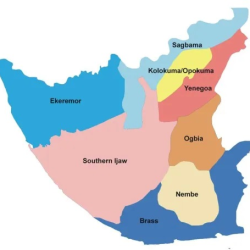Bayelsa State was created out of the old Rivers State on 1st October 1996. This means that the Bayelsa State Judiciary came into being as a result of the states creation exercise of the year 1996.
When the Bayelsa State Judiciary began, there were only six (6) High Court Judges.
Hon. Justice K.D. Ungbuku was appointed the Chief Judge while L.M. Boufini (later Hon. Justice L.M. Boufini) was the Chief Registrar.
There were also eight (8) Magistrates of various grades and about thirty-four (34) members of staff of different grades and cadres as supporting staff. An interesting fact about the Bayelsa State Judiciary is that both Hon. Justice K.D. Ungbuku and L.M. Boufini Esq. were serving as the Honourable Chief Judge and Chief Registrar respectively in the old Rivers State before their services were transfered to Bayelsa State following the creation.
The High Court Judges whose services were transferred from Old Rivers State Judiciary to the Bayelsa State Judiciary were:
- Hon. Justice K.D. Ungbuku
- Hon. Justice F.F. Tabai
- Hon. Justice K.S. Sagbe
- Hon. Justice F.K.C. Peters-Aiman
- Hon. Justice S.S. Alagoa
- Hon. Justice E.J. Igoniwari
THE PAST CHIEF JUDGES
Hon. Justice K.D. Ungbuku – October 1996 – May 27th 2003
Hon. Justice E.J. Igoniwari – May 27th 2003 – May 4th 2007.
Hon. Justice Kate Abiri – March 20th 2008 – date.
With a total of three hundred and fourty-one (341) members of staff comprising legal and non legal officers, the Bayelsa State Judiciary is fully set out in the dispensation of Justice in a fair and timely manner devoid of fear or favour to the citizenry. The number of staff, however, was quite inadequate especially in the administrative section where the Chief Judge had to engage contract officers to provide the needed leverage. Other departments, however, were not short in supply of capable hands to man the various sections of the Judiciary.
The Bayelsa State Judiciary had, at its inception; three (3) Judicial Divisions which were Brass, Sagbama and Yenagoa Judicial Divisions as well as five (5) Magisterial District inherited from the Old Rivers State Judiciary. The Customary courts were situated at Akassa, Brass, Ekowe, Kaiama, Sagbama, Ekeremor, Oloibiri and Onopa.
The Bayelsa State Judiciary showed flashes of greatness when within three (3) years of its creation, it appointed two (2) female Magistrates who were in the Old Rivers State and the Chief Registrar as High Court Judges. These appointment came as a result of the versatility of the individuals in question and the vacuum created by the elevation of a Justice to the Court of Appeal and the retirement of another.
Reference: bayelsa.gov.ng/index.php?option=com_content&view=article&id=109&Itemid=59
Bayelsa
Bayelsa is a state in Nigeria. It is located in the southern part of the country.

Created on October 1st 1996 from the old Rivers State, it’s bounded to the east by Rivers State and west by Delta State, the beautiful waters of the Atlantic Ocean dominates its southern borders.




It has the longest coastline in the West African sub-region making the State a tourists destination.

Bayelsa State consists of 8 Local Government Areas:
- Brass
- Ekeremor
- Kolokuma/Opokuma
- Nembe
- Ogbia
- Sagbama
- Southern Ijaw
- Yenagoa


The name Bayelsa is derived from a combination of acronyms of three Local Government Areas within its confines: Brass LGA (BALGA), Yenagoa LGA (YELGA), and Sagbama LGA (SALGA). The state is made up of 8 Local Government Areas; they are Ekeremor, Kolokuma Opokuma, Yenagoa, Nembe, Ogbia, Sagbama, Brass and Southern Ijaw.
The beautiful city of Yenagoa serves as the Capital City which plays host to most of the Government and private institutions.


The four main languages spoken are Izon, Nembe, Ogbia and Epie-Atissa. Like the rest of Nigeria, English is the official language.

Bayelsa State has one of the largest crude oil and natural gas deposits in Nigeria. Bayelsa is often described as the cradle of Ijaw culture and tradition because of its rich culture and tradition that dates back to so many centuries.
Fishing is the major occupation of Bayelsa people because of the abundant creeks, lagoons, rivers and swamps within which commercial fishing is practiced. Over 200 species of fish can be found in the waters within and around the state. Fish oil extraction is a common economic activity throughout all the LGAs of the state, and the coastal areas abound in sea foods such as fish, oysters, crabs, lobsters, periwinkle et cetera. There are also sea animals such as Hippopotamus, manatee, crocodile etc. in the seas, rivers and streams that crisscross the state.
Food crops grown in the state include yam, cocoyam, banana, pineapple and plantain. Cash crops grown in the state include coconut, pears, oil palm and raffia palm. The potentialities for the development of these crops to feed local industries are very good. Technologies are being developed to reclaim land from mangrove swamps in order to cultivate food, especially lowland rice and the cash crops identified above on a large, commercial scale.
Location: Bayelsa is geographically located approximately within Latitude 4°15 North at the Southern part & 5°23 North at the Northern limit and Longitude 5°22 East at the Western part & 6°45 East at the actual Eastern limit. It is bordered by Delta State to the West, Rivers State to the East, the Atlantic Ocean to the South and both Rivers and Delta States to the North.
Geology: Domiciled within the lower delta plain believed to have been formed during the Holocene of the quaternary period by the accumulation of sedimentary deposits. The major geological characteristic of the state is sedimentary alluvium.
Soils: The major soil types in the state are young and shallow,(inceptisol Aquepts) and acid sulphate soils (Sulphaquepts). There are variations in the soils, some soil types occupy extensive areas whereas others are of limited extent. However, based on physio graphic differences, several soil units could be identified in the state.
Climate and Vegetation: Rainfall in the State varies in quantity from one area to another. The state experiences equatorial type of climate in the southern the most part and tropical rain towards the northern parts. The average monthly temperature is in the range of 25°C to 31°C. The hottest months are December to April.
Minerals: With the largest crude oil reserve in the Niger Delta of Nigeria, the state produces over 40% of the country’s on-shore crude oil and vast quantities of associated gas. It also has large deposits of clay.
